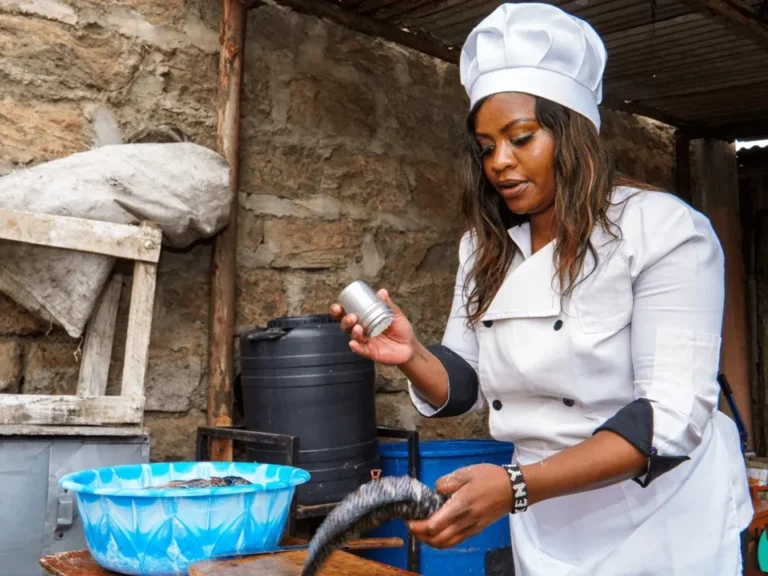Hand in Hand’s Kenya Micro-Enterprise Success (KMES) programme funded by Visa has resulted in participating entrepreneurs increasing their incomes by an average of Ksh. 20,000 per month. The project, which was launched in 2020, targeted existing small business owners as well as first-time entrepreneurs living below the poverty line.
The three-year programme provided 8,200 first-time entrepreneurs, 80% of whom were women, with the core business training needed to start their own micro enterprises. It also
offered advanced training to 1,600 participants, including 1,280 women, who already owned and operated small businesses. Despite kicking off just before the onset of the Coronavirus pandemic, which brought with it countrywide lockdowns, reduced movement and fewer physical interactions, the programme achieved significant success.
More than 80% of the members reported improved financial management skills with both first-time and existing entrepreneurs indicating that they were more financially resilient. This played a crucial role in helping participants weather the economic effects of the Covid-19 pandemic and 90% of them reported that they were able to withstand the financial shocks without having to sell an asset or getting into debt.
“At a time when businesses across the country were closing in record numbers our members were able to reduce their costs, expand into new markets and take their businesses online,” said Albert Wambugu Hand in Hand Eastern Africa CEO. “Additionally, this project gave our members a path to digital financial inclusion, with a majority of entrepreneurs being able to access useful and affordable financial products and services that meet their needs, thus reducing poverty, unleashing their potential and boosting prosperity.”
“We are proud of the outcomes delivered through Visa’s partnership with Hand in Hand. Not only did we surpass the number of targeted beneficiaries, but we have seen the immediate impact on their businesses. We will continue to seek out partnerships and opportunities that reach the traditionally underserved, providing them with access to resources that can help improve their economic livelihoods, businesses and communities”, said Eva Ngigi-Sarwari, Country Manager, Visa Kenya.
Moving their businesses online also played a key part in the entrepreneurs’ success as they began to market their products on social and digital platforms during the pandemic. The number of businesses accepting mobile payments rose from 38% to 81% while the programme created 5,178 jobs against an initial target of 2,766. First-time entrepreneurs
also increased their profitability by an average of 15%, while existing small businesses owners boosted their profits by an average of 95%.
“Thanks to this project with Visa, these women have been able to confound expectations and succeed as entrepreneurs, even during a global pandemic. As a result of the training,
they have been able to expand their businesses and lift their families out of poverty for good. What’s more, many of them are now employers, creating much-needed jobs in their
communities”, said Dorothea Arndt, Hand in Hand International CEO.
All programme members also received business and financial training, with existing small business owners being given additional mentoring and support to help them scale up their businesses. This included training in social media and digital marketing to help them link up with larger markets and access to credit.

